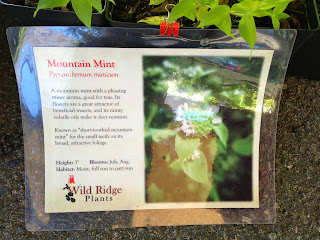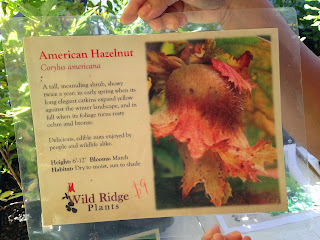First of all, I would like to my dear blog-community -- I am just so busy that I am not getting the time to visit any of your blogs or update my blog. Hopefully, it will change soon. I will at least try my best to visit your blogs. This post is for the seasonal celebration meme that Donna of
Gardens Eye View is hosting.
|
A field of yoder-mums, perennial mums, and sneezeweed. Okay, they are not exactly fields but are now profusely blooming in the garden.
Today, September 22, was the last day of the summer. However, it is still fighting over its last breath, refusing to lose its grip with temperature sometimes going above 80 degree Fahrenheit. Temperature soared to above 95 degree Fahrenheit on 9/11. Fall is not to be left behind; evenings and nights are becoming chilly. Both summer and winter crops are thriving in bright sunshine, cooler nights and few inches of rain every week.
|
This has been a year of tomatoes and beans. Tomatoes are always prolific in our garden but this year it has been exceptional due to the beautiful weather -- warm, bright days but not extremely high temperature; temperature dropping to about 70 or 75 degree Fahrenheit in the evening; rain and shower every week -- the optimal weather for abundant supply of fruits, flowers and vegetables. . Never did I get so much tomatoes and bean every day that I now do not even care to pick them -- many of them are just dropping off the plant and rotting away in ground. The late-season strawberries are in abundance now but again I do not bother to pick them up -- they are rotting away or becoming the food for insects and birds. Okra, pepper, eggplants and corns are still producing and ripening. Pumpkin-plants are done with their jobs; the pumpkins are stored away now, waiting to become good food during winter. The enormous gourd-vine is still trying to produce gourd though the imminent cooler fall is becoming its bane -- gourd does not like cold; it thrives in hot, muggy temperature. However, if everything goes nicely, I will be getting more than ten gourds from one plant. Jerusalem Artichokes are plumping up underground. The Asparagus plants are looking beautiful in their fern-like leaves and berries; they are storing up energies and becoming stronger to produce good asparagus next year.
|
I am slowly harvesting the potatoes. A huge amount has been produced. If I can store them properly, they will serve us for the whole next year. I have never done canning, storing, pickling or freezing garden bounties for winter consumption. This is my first year. So, now and then I am trying to take time out of my busy schedules to oven-roast tomatoes, freeze beans, tomatoes, okras and eggplants, wash, clean and store away potatoes, collect herbs and store them in olive oil and pickle other harvests. As I am doing these, my respect and admiration for the past generations is getting renewed -- harvesting, washing, cleaning, chopping, cutting, pickling, storing, freezing, cooking -- none of these '-ing' are easy jobs, especially without any of the modern amenities and facilities that we take for granted nowadays.
|
I am also busy planting the winter crops. There is a huge selection of plants that can be grown during winter with bare protection -- just few floating covers will do. However, the trick is that one needs to start planting them now so that they get all the bright sunshine to thrive and grow. Put them into ground sometimes in October before the ground freezes and one will have a whole winter supply of fresh greens and vegetables. Some of the crops that I am growing for winter are celery, Chinese Celery, Cabbage, Chinese Cabbage, Cauliflower, Broccoli, Broccoli-Raarb, Pak-choi (bok-choi, whatever they are called), Asian Greens, Mustard, Spinach, Lettuce, Rutabaga, Turnip, Parsnip, Beet, Chives, Garlic, Onion, Parsley, Coriander and Carrot (did I include all? I seem to be growing more!!).
|
This is also the time to focus on my failure and contemplate about next summer. I have learned that cherry-tomato plants should never be pruned as pruning will result in fewer cherry tomatoes. However, big-plump tomato-plants always need to be pruned to produce more bigger, plumper tomatoes!! It is a bad idea to plant squashes, pumpkins and gourds with other smaller plants as these vines grow humongous, and their huge leaves block all the sun-lights. I have been growing only bush-beans. I tried other beans this year and learned that they will climb up over anything; they will also climb up against each other, get all inter-twined and the beans will get vanished in that jungle. I do not know if these beans can become giant stalks or not but they can surely become giant jungles of vines where one has to get down on knees and crawl and poke around to search for bean-pods! Potato, tomato, okra and egg-plants can compete with any huge vines, grow taller and produce. However, peppers and greens fail -- they surely need their own spaces with lots of sunshine and air. Zucchini plants also need their own spaces. Basil needs lots of sunshine; however, seems to thrive in the semi-dark jungle of tomatoes. Tomatoes and Jerusalem Artichokes can easily become weed in the garden. Bees love onion-flowers and is one of the earliest flower to bloom in spring when everything is still naked and frozen. However, the down-side is onions will be extremely small; hardly any onions can be harvested if their flowers are left to bloom for bees to enjoy. The up-side is at the end of the season one will gather about billion onion seeds to last a life-time!! These onion-seeds can be used in cooking (they are used in various Indian cooking) or can be put in ground to create future onions (or spring onion if you like the greens).
|
|
This is also the time to plant perennials so that they gather and store all the energy during the winter to be healthy and profuse in the spring and summer. So, I bought some native plants
|
|









.JPG)


















